Lcd companion boards support (VKLCD50RTA & VKLCD70RT)
What is this ?
This is a demo program using Renesas RGA library & USB Camera to demonstrate VK-RZ/A1H's companion boards workability.
Supported companion Boards:
VKLCD50RTA
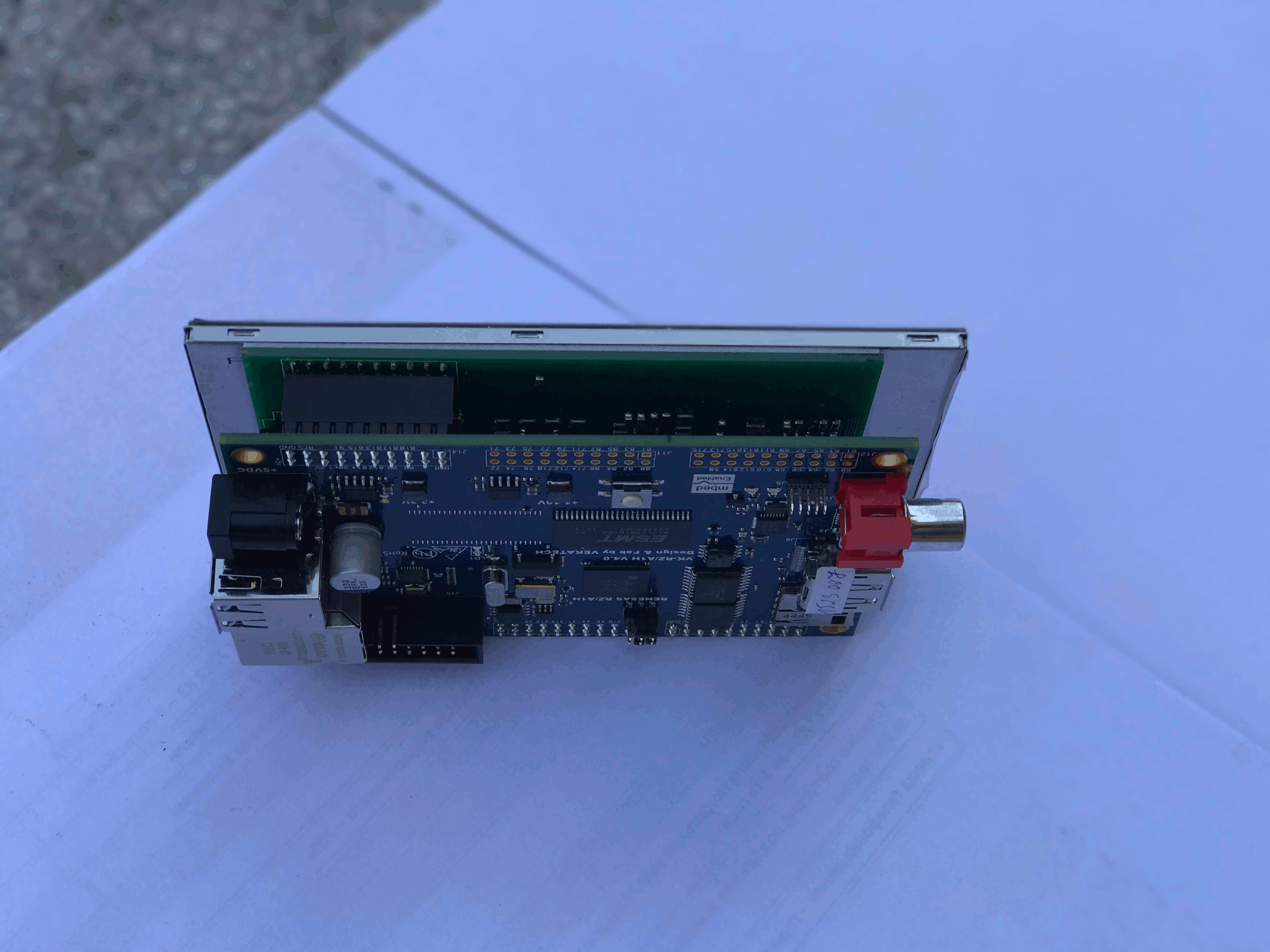
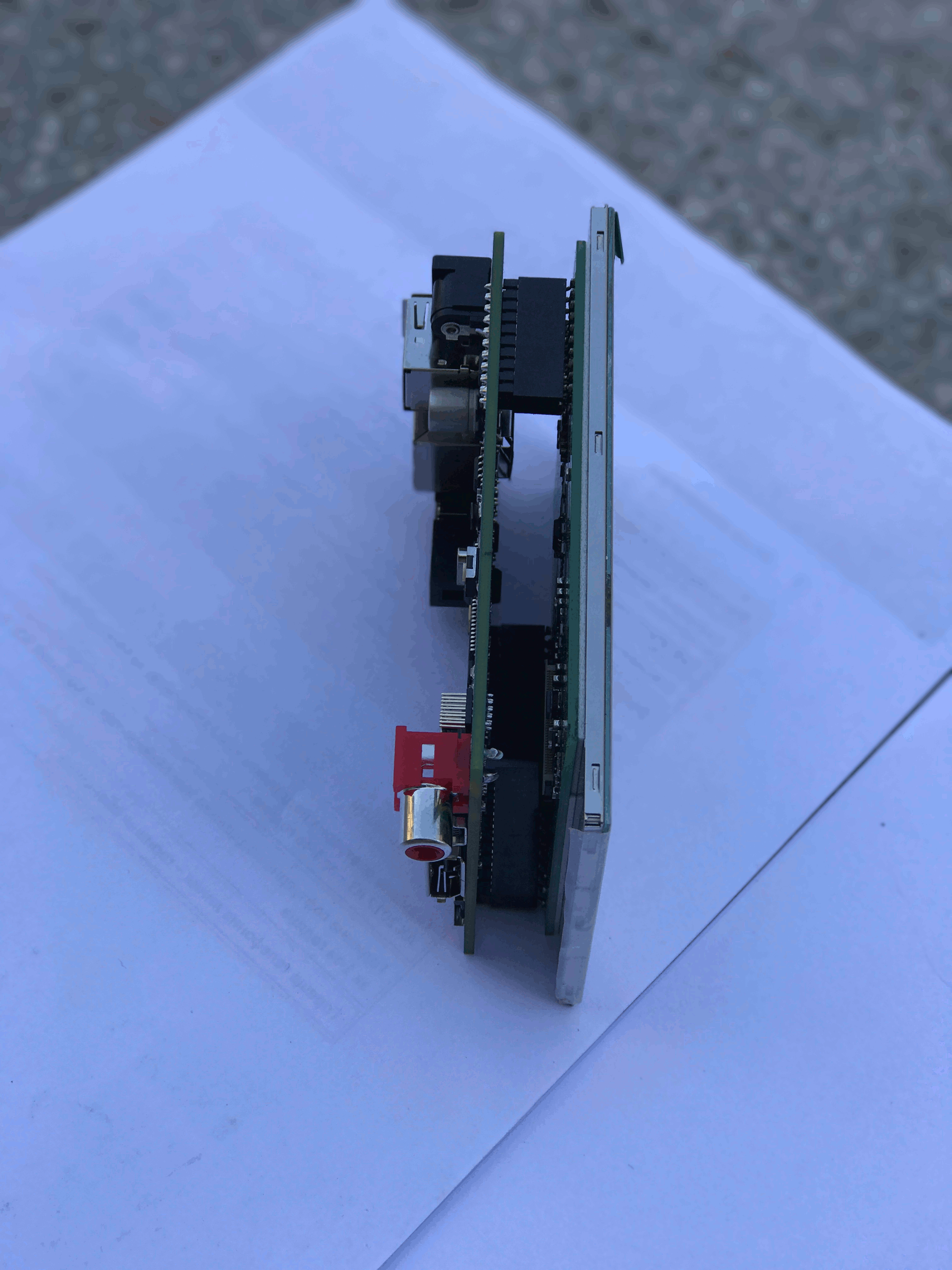
VKLCD70RT
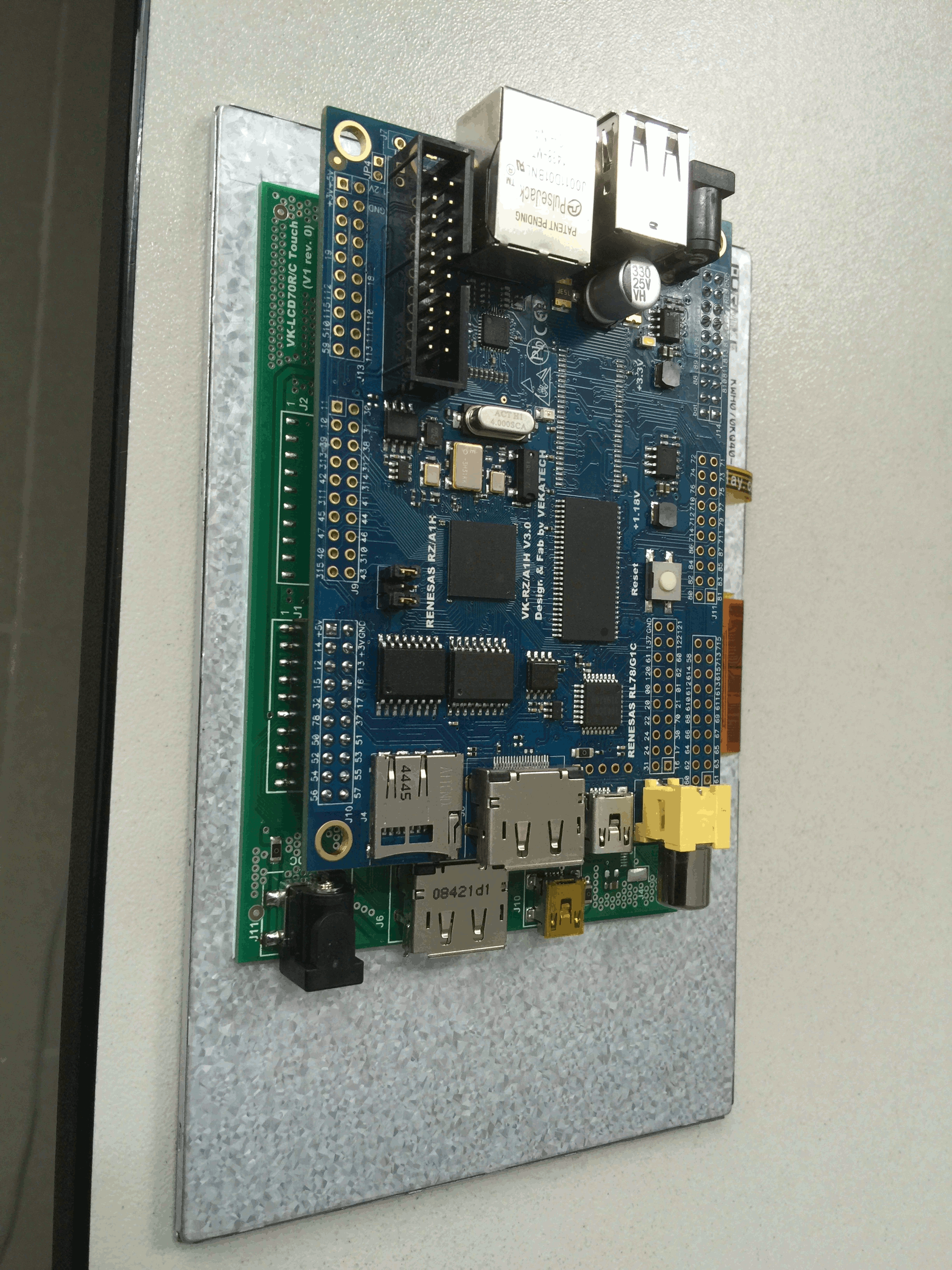
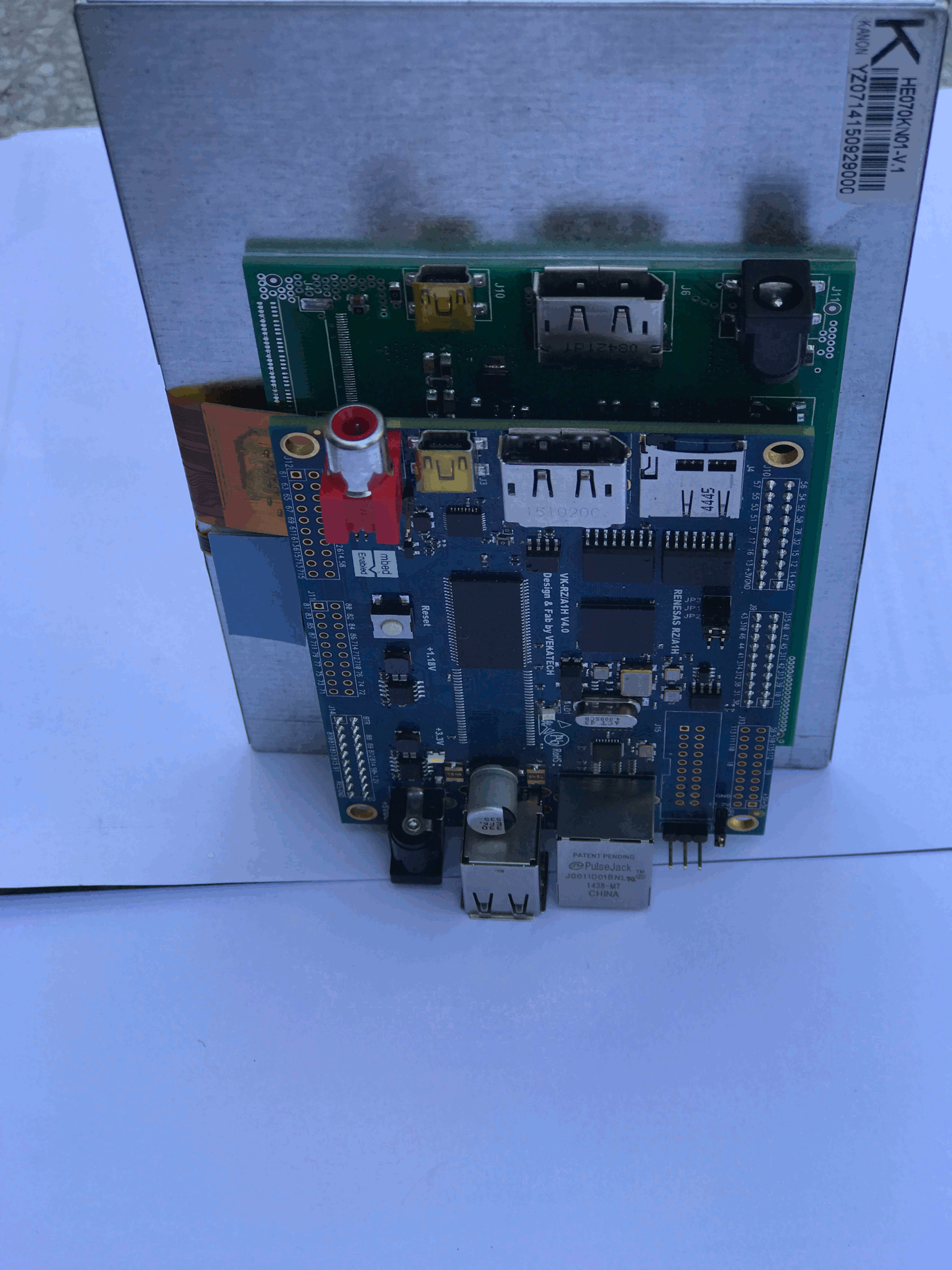
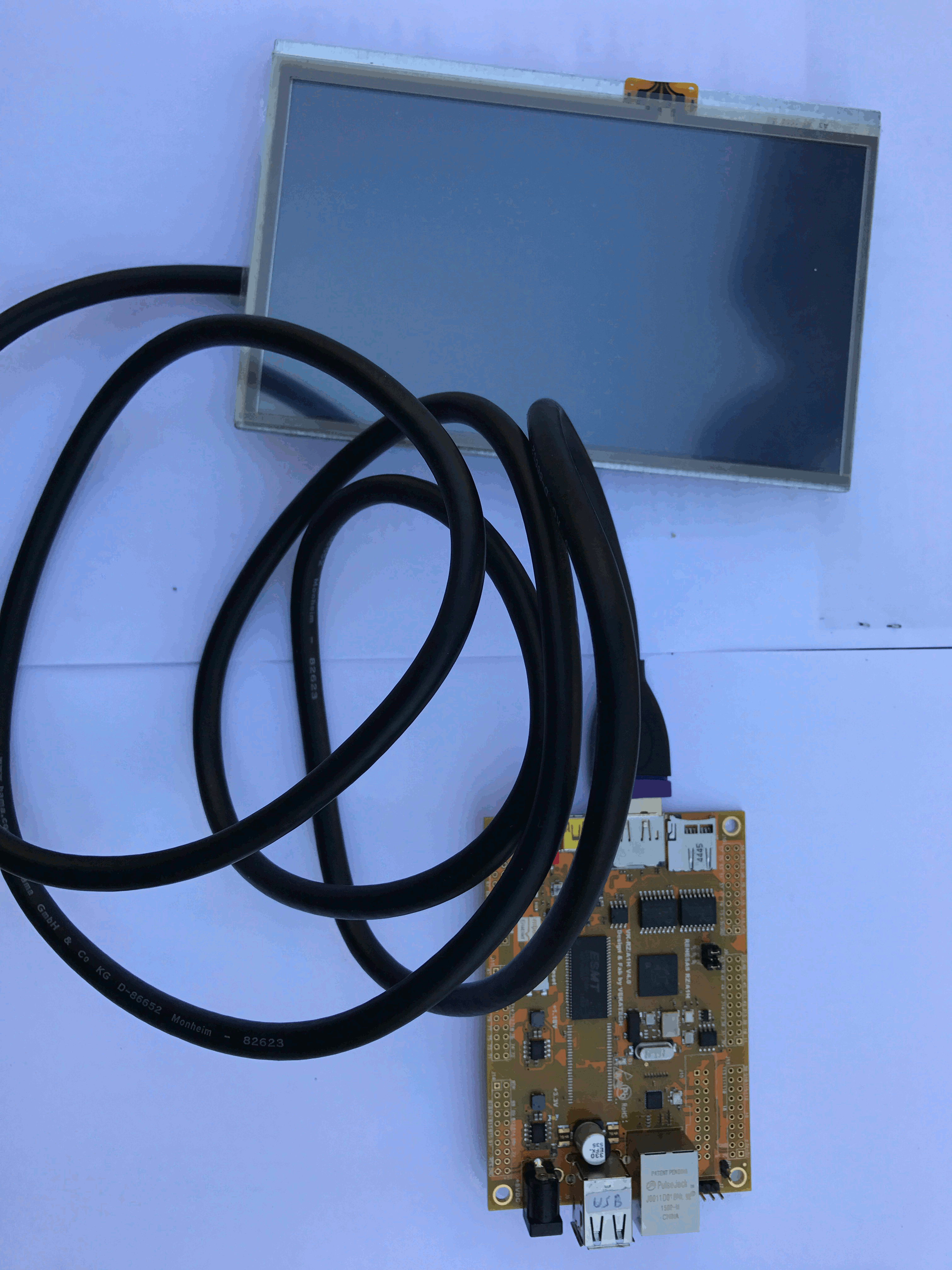
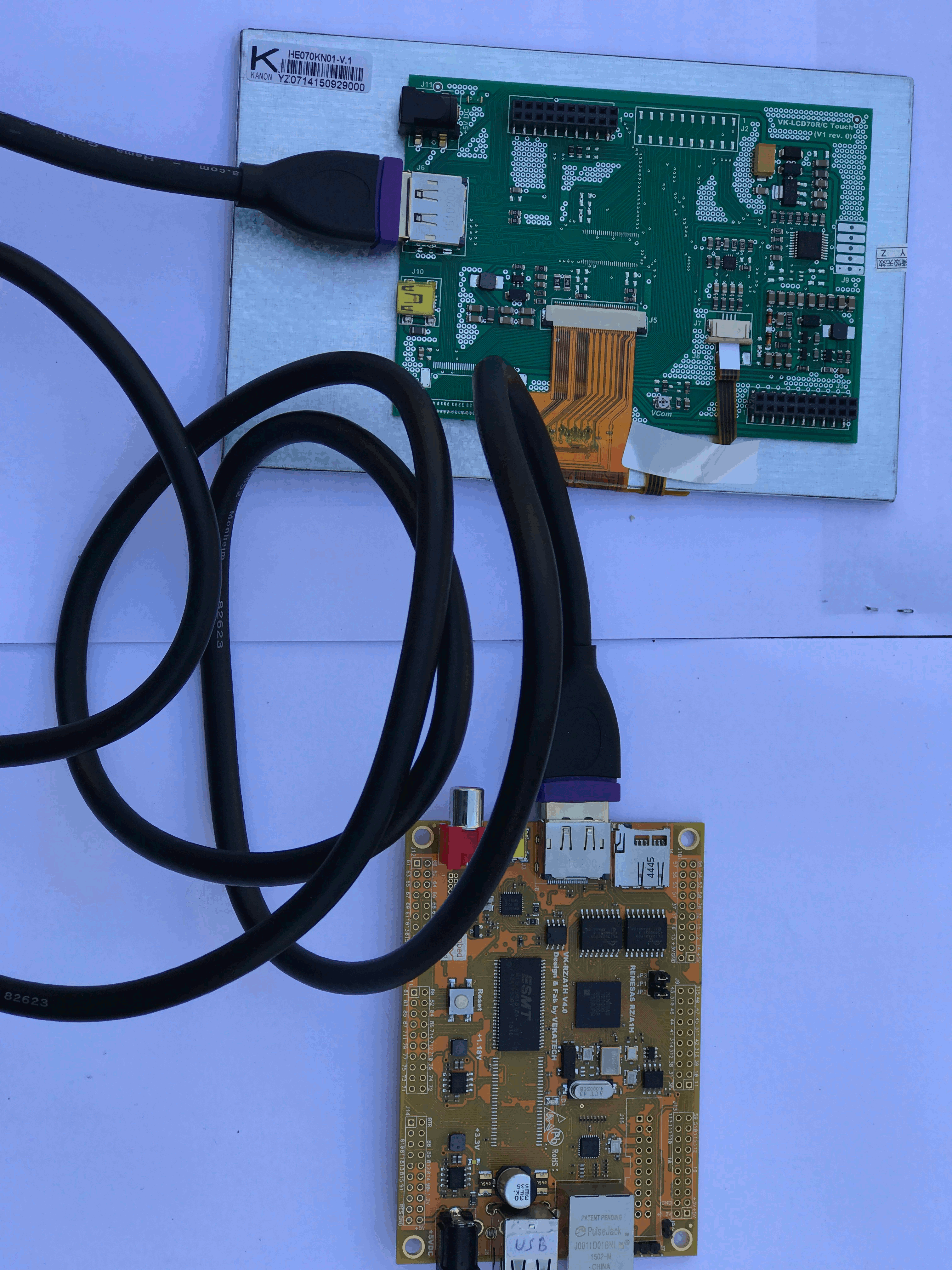
How to Configure ?
You can choose which display is installed by altering the lcd_panel.h file
Leave the active one & comment out the others:
#define LCD_VDC5_CH0_PANEL LCD_CH0_PANEL_VKLCD50RTA //#define LCD_VDC5_CH0_PANEL LCD_CH0_PANEL_VKLCD70RT
You can alter the whole demo with your pictures if you like:
How to compile ?
- The Demo can be compiled in 3 modes:
- I. Execution from the internal 10-MB on-chip SRAM.
- II. Execution from the on-board serial FALSH in dual (32-MB) mode.
- After import in the online compiler just leave only the VKRZA1H_DOUBLE.sct & delete all others linker files in the TOOLCHAIN_ARM_STD folder.
- Drag & drop the result binary in MBED disk, (previously inited in double flash mode)
- III. Execution from the on-board serial FALSH in single (16-MB) mode.
- After import in the online compiler just leave only the VKRZA1H_SINGLE.sct & delete all others linker files in the TOOLCHAIN_ARM_STD folder.
- Drag & drop the result binary in MBED disk, (previously inited in single flash mode )
Quick presentation:
Other demos ?
More demos you can find on our FTP
Diff: USB/uvc/BaseUvc.h
- Revision:
- 0:6435b67ad23c
--- /dev/null Thu Jan 01 00:00:00 1970 +0000
+++ b/USB/uvc/BaseUvc.h Thu Feb 16 10:23:48 2017 +0000
@@ -0,0 +1,52 @@
+// BaseUvc.h
+#include "USBIsochronous.h"
+#pragma once
+
+// --- UVC --------------------------------------------------
+#define _30FPS 333333
+#define _25FPS 400000
+#define _20FPS 500000
+#define _15FPS 666666
+#define _10FPS 1000000
+#define _5FPS 2000000
+#define _1FPS 10000000
+
+#define SET_CUR 0x01
+#define GET_CUR 0x81
+#define GET_MIN 0x82
+#define GET_MAX 0x83
+#define GET_RES 0x84
+#define GET_LEN 0x85
+#define GET_INFO 0x86
+#define GET_DEF 0x87
+
+#define VS_PROBE_CONTROL 0x01
+#define VS_COMMIT_CONTROL 0x02
+
+class BaseUvc {
+public:
+ void poll(int millisec = 0);
+ USB_TYPE Control(int req, int cs, int index, uint8_t* buf, int size);
+ USB_TYPE setInterfaceAlternate(uint8_t intf, uint8_t alt);
+ IsochronousEp* m_isoEp;
+ uint32_t report_cc_count[16]; // ConditionCode
+ uint32_t report_ps_cc_count[16]; // Packt Status ConditionCode
+ // callback
+ void onResult(uint16_t frame, uint8_t* buf, int len);
+ void setOnResult( void (*pMethod)(uint16_t, uint8_t*, int) );
+ class CDummy;
+ template<class T>
+ void setOnResult( T* pItem, void (T::*pMethod)(uint16_t, uint8_t*, int) )
+ {
+ m_pCb = NULL;
+ m_pCbItem = (CDummy*) pItem;
+ m_pCbMeth = (void (CDummy::*)(uint16_t, uint8_t*, int)) pMethod;
+ }
+ void clearOnResult();
+ CDummy* m_pCbItem;
+ void (CDummy::*m_pCbMeth)(uint16_t, uint8_t*, int);
+ void (*m_pCb)(uint16_t, uint8_t*, int);
+protected:
+ USBHost * host;
+ USBDeviceConnected * dev;
+};